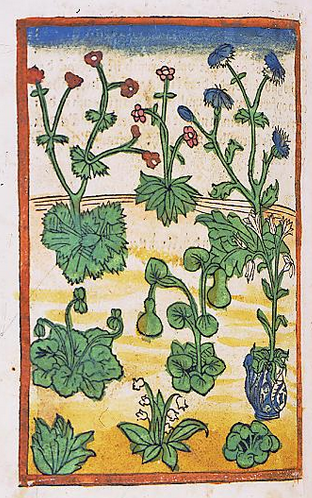Book of Nature, Book of Scripture

In the fourteenth century, a German priest, Conrad of Megenberg, wrote “The Book of Nature”. It was based on the assumption, shared by some theologians in that era, that God’s revelation was shown equally in nature and in scripture. It was presumed that the two “books” were seamlessly compatible.
But that was before the scientific revolution, which resulted in findings about nature that conflicted with traditional interpretations of the Bible. After that, readers of the Book of Nature went in one direction, and readers of the Book of Scripture in quite another.
Until now. Science is now revealing the neural pathways of the human experience of transcendence, the essential and universal phenomenology of religion. And progressive Christianity is re-interpreting the Bible and the traditions of the church in a manner compatible with scientific knowledge.
By progressive, I mean Christianity that creatively practices its rich traditions with an ongoing evolution of interpretation. A Christianity that takes the Bible seriously because it does not have to take it literally. A faith that reads the Bible as a collection of human documents about the quest to engage with Ultimate Reality. A Christianity that understands most of the Bible stories as myths that can induce deep spiritual transformation. A faith that worships God as Love, not as a Guy in the Sky. A religion that sees itself as one among others that may have more or less equal validity. A Christianity that is focused on deeds rather than creeds, direct spiritual experience rather than rote acceptance of beliefs.
What is distinctive about progressive Christianity is that it can translate its essentials into secular language. Other forms of Christianity cannot. They presume adherence either to a literalistic interpretation of the Bible or to the a-priori authority of church teachings. Progressive Christians lift up universal wisdom that can be expressed in either secular or religious terms. For us, any religious idea that conflicts with the Book of Nature either should be dropped or re-imagined. As science advances, so our religion will evolve. We treasure our religious tradition, finding its myths, poetry, music, art and ritual to be powerfully evocative of our spiritual experience. But we strive to be bi-lingual and bi-cultural.
Let us read the Book of Nature and the Book of Scripture next to each other. The Book of Nature boggles us with awe and wonder at the unfolding of the cosmos and the origin and development of life. The Book of Scripture, and the traditions of the church, give us a mythic and poetic language to express that awe, and to practice the love that flows from it…….
